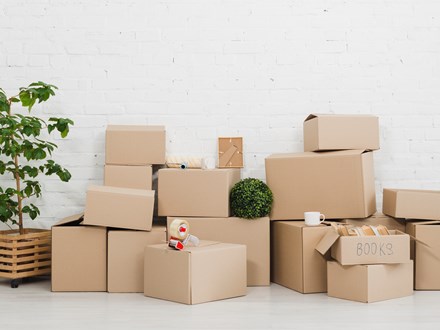On 1 July the new law banning single-use handled plastic shopping bags came into force. You may be surprised to see it applies to biodegradable, compostable and “oxy-degradable” plastics bags. And Wellington City Council has announced its composting facility will no longer take compostable bags and compostable coffee cups.
The idea is that these compostable products break down safely in the environment. So why are they being ruled out?
Well, it’s a little complex. Let’s take the easiest case first. “Oxo-degradable” plastics turn out to be conventional oil based plastics. But they contain additives that make them fragment into microplastics, so they look like they have gone away when they haven't. That's bad for our health and for the environment. They contaminate composting systems and aren’t recyclable. So good riddance.
But compostable plastics are made of things like sugar cane. They should be alright?
Not necessarily.
Current compostable products are essentially still single use. They don’t add nutritional, fibre or economic value when composted. In reality they are downcycled, rather than recycled. So they effectively still end up as waste, instead of as a useful feedstock to more production.
But at least they get composted, right? Well, there are currently very limited systems for the collecting this stuff in New Zealand. There’s only about 11 facilities nationwide that can process these compostable products. Many of them can only take limited types or amounts to keep their compost mix right.
Currently most compostable packaging looks similar to non-compostable materials. It can be difficult to separate from non-compostable items like cutlery, straws and napkins.
This means that a lot of compostable packaging is not composted or recycled. It is often discarded and/or missorted. A lot of it ends up in landfill. It does not break down there. There's not enough heat and moisture for that to happen.
James Griffin is SBN’s circular economy lead.
“Dealing with single use plastics is a real challenge. Appropriately designed compostable packaging may be a transitional solution. But only if we can get to grips with proper life cycle management.”
“We support the efforts of the businesses taking a lead on this. Innocent Packaging, Better Packaging, Ashbec Trading, Compost Me, Ecoware, Friendlypak, r3Pack, Commonsense Organics and more."
"We recognise there's significant resources and risks involved. We acknowledge the desire for innovators to secure first mover and competitive advantage."
“Unfortunately, New Zealand’s waste system can't yet deal with some of these packaging innovations."
All composting facilities in New Zealand are commercial operations. They can only take compostable materials that do not jeopardise the commercial value of their compost. In Wellington the Council decided that it wanted to get BioGro Organic Certification for the compost it makes. The stringency of those standards meant they couldn’t risk processing these products.
The situation illustrates the need for different sectors to work together on this.
James says: “These systemic issues cannot be overcome by individual businesses. They don't only involve a single sector. We need to take a collaborative, partnership approach to managing this transition.”
The Sustainable Business Network’s Circular Economy Accelerator is focused on accelerating New Zealand’s transition to a circular economy. This means shifting from a system in which raw materials are extracted to create short lived products that end up being discarded. In a circular economy all materials are kept in continuous cycles of use and reuse. A key part of this is product stewardship – the need for businesses to be responsible for the full life cycle of the products they create.
SBN is currently working to clarify the situation. It is bringing stakeholders together to work on solutions. It offers a customisable range of advisory services on this and other areas of the circular economy. It is working to develop clearer guidance on packaging and packaging systems for businesses.
Contact james@sustainable.org.nz to find out more.

